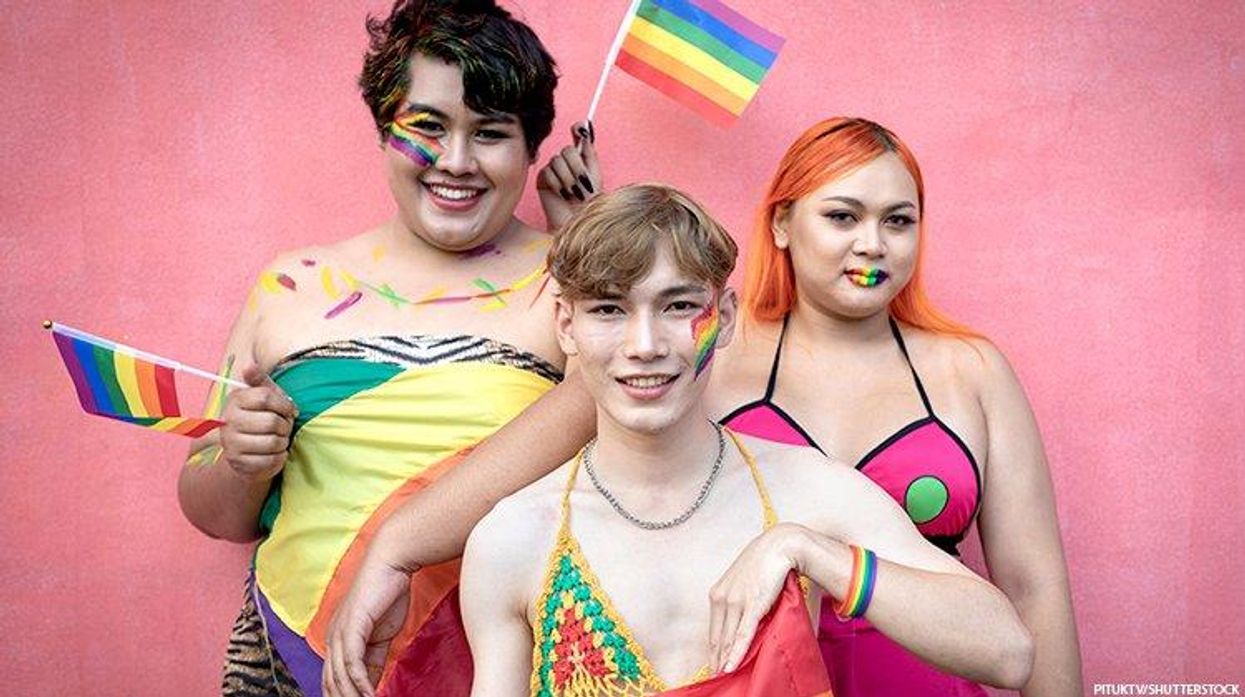Each September, my colleagues and I at The Trevor Project find ourselves especially busy, completing our usual work as part of the largest suicide prevention and mental health organization for LGBTQ young people – but with an added spotlight of doing this type of work during National Suicide Prevention Awareness Month. However, last week, the month kicked off differently than in previous years. A group of anti-LGBTQ extremists targeted Trevor’s digital crisis lines, flooding them so that more LGBTQ young people would kill themselves because they couldn’t reach the help they needed.
This incident paints a striking picture of what LGBTQ young people, a marginalized group that is four times as likely to attempt suicide compared to their peers, have to deal with on a regular basis – simply because they exist.
When it comes to the public health crisis of LGBTQ youth suicide, it’s important to understand that these young people are not inherently prone to suicide risk because of their sexual orientation or gender identity. Rather, LGBTQ youth are placed at a higher risk because of how they are mistreated and stigmatized in society.It’s impossible to separate these harrowing statistics and the attacks on Trevor’s crisis lines from our current political climate, as it continues to grow more and more hostile toward LGBTQ youth. This year, over 300 anti-LGBTQ bills have been introduced in state legislatures across the country, with most targeting trans and nonbinary youth in particular. Polling shows these bills – and the ugly debates surrounding them – are taking a toll on the mental health of LGBTQ young people. Eighty-five pervent of trans and nonbinary youth – and two-thirds of all LGBTQ youth – said debates about anti-trans bills negatively impacted their mental health. It is heartbreaking to see lawmakers work so hard to torment a group of already marginalized young people as a tactic to win votes, especially when they know that doing so can risk lives.
Beyond bills and elections, there is something larger happening here. We are experiencing a growing, nationwide misinformation campaign that, at its heart, aims to convince people that LGBTQ youth – and trans and nonbinary youth in particular – should not exist. We urge everyone – especially lawmakers, to take a step back and realize the ripple effect of our current national discourse around LGBTQ young people. LGBTQ youth are being bombarded with harmful rhetoric based on misinformation about what it means to be LGBTQ – and, in most cases, what it means to be trans. Total inaccuracies are being spread about different facets of their everyday lives – what it means for them to receive health care, learn about LGBTQ topics at school, or even use the bathroom. These lies are informing laws. And the people who spread them do not exist in a vacuum.
This type of misinformation often trickles down into communities, and families, and forums until people become so convinced that LGBTQ young people have no right to exist, that they actively work to eliminate them, and anyone who supports them. That’s exactly what we saw last week with the attacks on The Trevor Project’s crisis lines, and what doctors who provide best practice gender-affirming medical care in hospitals across the country are dealing with now, too.
I urge everyone to consider the very real and life-threatening impact that our current national dialogue has created. We need to hold people accountable for spreading this misinformation – especially those with large platforms. Whether popular politicians or leading news organizations, everyone has an obligation to shut down misinformation and ugly rhetoric surrounding LGBTQ youth as soon as they hear it. This is not a matter of political correctness or the latest culture war debate. Young people’s lives are on the line.
This is a challenging time to work in suicide prevention for LGBTQ young people. At the same time, there is much to be hopeful for. The Trevor Project’s research consistently finds that LGBTQ young people report lower rates of attempting suicide when they have access to LGBTQ-affirming spaces. In fact, having at least one accepting adult can reduce the risk of a suicide attempt among LGBTQ young people by 40 percent. You do not need to be an expert in mental health or LGBTQ topics to support LGBTQ young people and make them feel seen. Something as simple as talking respectfully about LGBTQ identities, or being welcoming and kind to LGBTQ people, can make youth feel supported. Beyond affirmation, research also shows that when adults in LGBTQ young people’s lives take simple actions like these, doing so can be associated with lower suicide risk, too.
As we continue to prioritize how each of us can help prevent suicide this week, this month, and all year round, let’s consider how we talk about – and treat – LGBTQ young people. We all have the power to help prevent suicide among these youth, in both small and enormous ways. So, let’s start taking that power seriously.
Kevin Wong is VP of Communications at The Trevor Project.
Views expressed in The Advocate Channel’s opinion articles are those of the writers and do not necessarily represent the views of The Advocate Channel or our parent company, Equal Pride.
If you are having thoughts of suicide or are concerned that someone you know may be, resources are available to help. The National Suicide Prevention Lifeline at (800) 273-8255 is for people of all ages and identities. The Trevor Project Lifeline, for LGBTQ+ youth (ages 24 and younger), can be reached at (866) 488-7386. Users can also access chat services at TheTrevorProject.org/Help or text START to 678678. Trans Lifeline, designed for transgender or gender-nonconforming people, can be reached at (877) 565-8860. The lifeline also provides resources to help with other crises, such as domestic violence situations.

















































